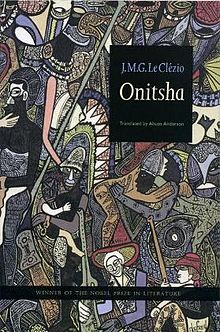Le Clézio’s Onitsha was published in 1991 and is to date the most important fictional piece the author has devoted to his childhood experience of colonial black Africa (British-ruled Nigeria of the late 1940s). I approach the work as an instance of postcolonial discursive practice and focus specifically on the nature and function of the cross-cultural perspective it offers. I grant that any attempt to describe a culture other than one’s own inevitably involves using one’s cultural reference to describe that culture. I further grant that the unavoidable use of one’s cultural lens to relate to another culture rules out the possibility of there being a one-to-one relationship between what one writes about the other culture and what that culture is in its complexity. I claim none the less that the attempt at crossing boundaries — even from a culture that has stood in a position of antagonism and domination in relation to another — is not always to be seen as a cultural self-serving and self-aggrandizing venture. The attempt may well be for all its imperfections a necessary exercise in cultural self-questioning and a welcome threshold of engaging with or indeed opening up to difference. This is perhaps particularly so when one considers that Onitsha was written and published some three decades or so after the achievement of independence in black Africa.
SUMMARY:
Onitsha tells the story of Fintan, a young European boy who travels from Bordeaux to the port of Marseilles to sail along the coast of Africa to the mouth of the Niger River to Onitsha in colonial Nigeria with his Italian mother (nicknamed Maou) in the year 1948. Warren Motte wrote a review in World Literature Today to note that, like many of Le Clézio’s writings Onitsha is a novel of apprenticeship. He mentions that the very first words of the novel inscribe the theme of the journey and announce that it will occupy the foreground of the tale and he quotes a passage from Ontisha to exemplify Fintan’s reluctance to embark upon that journey
Onitsha was, as I may have already implied by now, a translator’s dream. The language is fluid and evocative, not too difficult, clear and classical. This may seem obvious to readers of the original, but if I just cite some other examples of literature I have translated or looked at, I realize just how fortunate I have been to translate Le Clezio. I have done excerpts from Sylvie Germain’s work, and it is extremely difficult – challenging, no doubt, but often near-impossible, leading to a kind of rapturous frustration for the translator, because the language is so baroque and rich, so very idiomatically French as well, that if one is not careful it quickly becomes unpalatable to the English reader. Either the poetry is lost, or one must betray the original: I found myself walking a real tightrope in working with her text
“Onitsha” is remarkable for its “almost mythological evocation of local history and beliefs.” It is full of atmosphere – sights, sounds, smells – and at times the author’s sentences seem to flow with the dreamy languor of the river itself. But J. M. G. Le Clezio “never lets us forget the harsh realities of life nor the subsequent tragedy of war.” A startling account – and indictment – of colonialism, “Onitsha” is also a work of clear, forthright prose that ably portrays both colonial Nigeria and a young boy’s growing outrage.- Alison Anderson
Source: fs.oxfordjournal.org, Wikipaedia
InlandTown! 2015.


